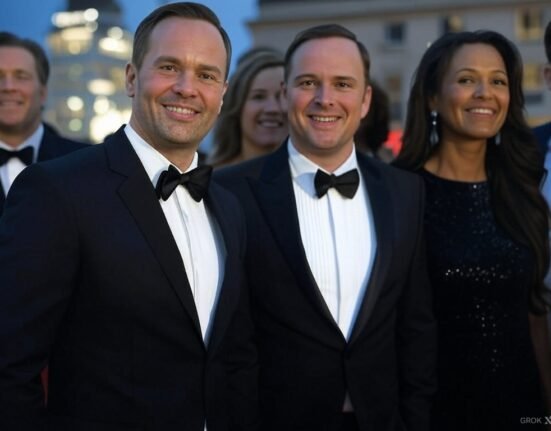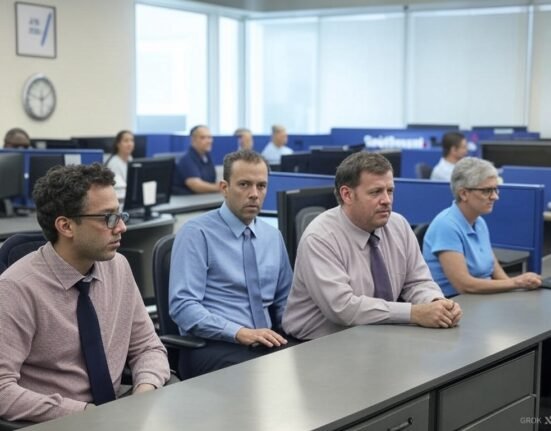My First Gran Turismo (MFGT) represents an exciting foray into the world of motorsport simulation, designed specifically to cater to a younger audience and those new to the Gran Turismo franchise. The core objective of MFGT is to provide an introductory platform where players can familiarize themselves with the intricacies of car racing and vehicle management in a simplified yet engaging manner. This accessible approach plays a vital role in expanding the Gran Turismo community, appealing to a more diverse player demographic.
The decision to position MFGT as a free-to-play demo underscores its significance within the broader ecosystem of Gran Turismo. By allowing players to experience the game at no cost, MFGT lowers the barriers to entry, facilitating a smoother transition for newcomers who may be hesitant to commit to a full-priced title. This strategy not only enhances player engagement but also serves as an effective marketing tool for the franchise, encouraging players to explore more advanced versions of Gran Turismo once they have established their interest.
As players navigate through MFGT, they will encounter various learning modules that demystify core racing concepts such as controls, car tuning, and race strategies. The emphasis on education and skill development reflects Kazunori Yamauchi’s vision for the project, which aims to nurture a new generation of motorsport enthusiasts. By meticulously blending arcade-like enjoyment with authentic racing experiences, MFGT sets an inviting stage for players to grow their passion for racing. This introductory experience is critical, not only for capturing the attention of potential players but also for cultivating an enduring appreciation for the Gran Turismo franchise as a whole.
The Vision Behind MFGT: Insights from Kazunori Yamauchi
Kazunori Yamauchi, the visionary behind the Gran Turismo series, recently shared valuable insights during a round-table interview regarding his motivations for developing “My First Gran Turismo” (MFGT). At the heart of his vision lies a commitment to accessibility, particularly for new players entering the franchise. With the racing genre being highly competitive, Yamauchi is keenly aware of the barriers that may deter potential players. By simplifying mechanics and enhancing user interfaces, MFGT promises a more intuitive experience, enabling newcomers to engage with the game without feeling overwhelmed.
This focus on accessibility aligns with the overarching philosophy of the Gran Turismo franchise: to make motorsports and car culture enjoyable and welcoming for everyone. Yamauchi expressed his desire to cultivate a broader interest in racing, emphasizing that MFGT serves as an introduction to the rich world of Gran Turismo. His aim is not only to attract seasoned gamers but also to appeal to families and younger audiences who may have previously overlooked the series. Through MFGT, the franchise intends to bridge the gap between casual players and dedicated racing enthusiasts.
Moreover, Yamauchi discussed how this initiative reflects his passion for sharing automotive experiences. He believes that the exhilaration of racing should be universally accessible, and MFGT represents a strategic step towards that goal. By integrating educational elements about automobiles and racing in an interactive format, the game seeks to enhance players’ understanding and appreciation of motorsports. This educational aspect is crucial in empowering new players to appreciate the technicalities and nuances of racing, thereby fostering a deeper connection with the Gran Turismo universe.
Expanding Experience: Updates and Future Features
The evolution of “My First Gran Turismo” (MFGT) is an exciting prospect for both new and returning players. As hinted at by Kazunori Yamauchi, the future updates will aim to enhance the gameplay experience significantly. These enhancements will not only focus on refining existing features but also on introducing entirely new elements that can enrich the gaming experience.
One of the anticipated updates includes expanded vehicle customization options, allowing players to modify their cars in unprecedented ways. This feature could potentially encompass various aspects, such as performance tuning, aesthetic modifications, and even user-created designs. These enhancements give players a deeper sense of ownership and a chance to showcase their creativity within the game. Furthermore, the introduction of new cars from diverse manufacturers will keep the content fresh and engaging, introducing exciting challenges for players.
In addition to car customization, there may be advancements in multiplayer functionality. Enhanced online modes could allow for more competitive racing events, community challenges, and seasonal competitions. Such features would not only foster player interaction but also encourage a vibrant community around MFGT, promoting teamwork and camaraderie among players.
Another potential area of expansion could be the game’s environment. The addition of new tracks and geographical settings, along with dynamic weather conditions, would create varied racing experiences. This variability encourages players to adapt their strategies and driving styles, adding layers of complexity to the gameplay.
As updates roll out, maintaining player engagement will be crucial. Continuous communication from developers about future directions for MFGT will ensure that the community remains informed and excited about what lies ahead. Overall, the future of MFGT is poised for significant growth, promising an enriched experience that keeps pace with players’ evolving expectations.
Target Audience: Who is My First Gran Turismo For?
The primary demographic that My First Gran Turismo (MFGT) aims to attract includes younger gamers and newcomers to the racing genre. This section explores the significance of catering to this audience and how engaging them can cultivate a new generation of racing enthusiasts. By introducing novice players to the world of racing through a user-friendly platform, MFGT serves as an excellent entry point for individuals who may not have previously participated in this genre.
Younger players, often aged between 6 and 15, represent a significant portion of the target audience. This age group is usually entering the realm of video gaming for the first time, and a game like MFGT provides a safe and accessible environment for them to explore. The game’s design incorporates intuitive controls and gradual learning curves, aiming to reduce the intimidation factor commonly associated with traditional racing titles. As they engage with MFGT, these players can develop fundamental racing skills, fostering confidence that might motivate them to explore other racing games, including more complex installments within the Gran Turismo series.
Moreover, MFGT also seeks to attract individuals who might not have previous experience with racing games. This demographic could include casual gamers who typically engage with family-friendly games or even those who play video games infrequently. By focusing on broad accessibility, the developers intend to smooth the transition for players unfamiliar with the intricacies of car physics or competitive racing. The educational aspect of MFGT not only provides an engaging experience but also stimulates interest in the rich history and nuances of the Gran Turismo franchise. Ultimately, by targeting these specific demographics, MFGT can succeed in drawing new players into the captivating world of racing games, thereby laying the groundwork for long-term interest.
The Role of Free-to-Play Models in Gaming
The rise of free-to-play (F2P) models has significantly transformed the gaming landscape, particularly within the realm of titles like My First Gran Turismo (MFGT). This model allows players to access the game without an upfront cost, making it more accessible to a wider audience. However, the implementation of F2P comes with its own set of advantages and challenges that could impact player engagement and the overall gaming experience.
One of the primary advantages of the free-to-play model is the increased player base it generates. By removing financial barriers, more individuals are encouraged to try the game, which can lead to vibrant online communities and more interaction. This fosters a sense of belonging among players, enhancing their investment in the game. Furthermore, as players explore the various content offered, the potential for organic marketing through word-of-mouth increases, contributing to the game’s longevity.
Despite these benefits, there are notable pitfalls associated with free-to-play models, particularly concerning monetization strategies. Developers often rely on in-game purchases to sustain revenue, which can lead to a pay-to-win environment. This risks alienating players who choose not to spend money, as their gaming experience may be hindered by competitive disadvantages. Striking a balance between monetization and user experience is crucial; options such as cosmetic items or non-intrusive advertisements may offer solutions that keep the game fair while still generating revenue.
Ultimately, the success of MFGT as a free-to-play title will be determined by how well it navigates these dynamics. By focusing on enhancing user engagement and ensuring a balanced approach to monetization, the model can provide a sustainable future for the game and its community, enriching the overall gaming experience.
Reception and Community Feedback
My First Gran Turismo (MFGT) has garnered substantial attention since its release, captivating both longtime fans of the Gran Turismo franchise and newcomers alike. From the outset, player response has been both enthusiastic and critical, leading to a bustling dialogue within various gaming circles. Critics have generally praised the game for its immersive graphics and carefully designed gameplay mechanics, which maintain the series’ essence while introducing innovative features. As a result, MFGT has been recognized by several gaming publications as a noteworthy addition to the franchise.
Community feedback has emerged prominently on forums, social media platforms, and gaming content channels, reflecting a diverse range of opinions. Players have remarked positively on the game’s accessibility, especially for those who may not have had prior experience with racing simulators. The user-friendly interface and tutorials have significantly contributed to a welcoming environment for beginners. Furthermore, the breadth of cars and tracks available upon launch has sparked excitement, allowing players to engage in various racing styles and challenges.
However, not all feedback has been favorable. Some players have voiced concerns regarding the game’s progression system and its impact on long-term engagement. Specific critiques highlight the grinding required to unlock advanced cars or features, which some feel diminishes the overall experience. Additionally, discussions surrounding the game’s online multiplayer functions have raised questions about stability and matchmaking, which are crucial for sustaining a vibrant community.
The fanbase’s passion has led to extensive discussions about potential updates and improvements, illustrating the community’s investment in the game’s future. Some players have created dedicated forums to share tips, strategies, and modifications, showcasing an active involvement that bodes well for MFGT’s lifespan. Overall, the reception of My First Gran Turismo continues to evolve, demonstrating its impact and relevance within the broader gaming landscape.
Comparison with Gran Turismo 7
The Gran Turismo series has long been celebrated for its realism and depth in racing simulation, making it a frontrunner in the gaming industry. My First Gran Turismo (MFGT) emerges alongside Gran Turismo 7, offering an engaging experience tailored for a younger audience while retaining the core elements that fans cherish. While both games provide exhilarating racing experiences, they cater to different segments of players, each with unique gameplay dynamics, graphics, and overall engagement levels.
One of the notable similarities between MFGT and Gran Turismo 7 is the commitment to authenticity. Both titles aim to deliver realistic driving mechanics and meticulously recreated cars. However, Gran Turismo 7 leans more heavily into advanced physics and an expansive vehicle roster, ideal for seasoned players seeking immersive simulations. In contrast, MFGT simplifies some of these complexities, creating a more accessible environment for beginners. This establishes MFGT not only as a standalone title but also as a complementary product that can serve as a gateway into the more intricate aspects of the Gran Turismo series.
In terms of graphics, Gran Turismo 7 showcases cutting-edge visuals powered by the latest gaming technology, offering breathtaking environments and lifelike car models. MFGT, while not as advanced visually, capitalizes on a vibrant artistic style that appeals to its intended demographic. The colorful visual palette and cartoonish designs in MFGT help to create an inviting atmosphere for younger players, aligning perfectly with its educational growing approach.
Overall, the experience in Gran Turismo 7 is more robust and geared towards detailed simulation, while MFGT successfully focuses on introducing critical racing concepts to newcomers. This strategic balance supports their relationship within the franchise, as MFGT nurtures budding racers who may ultimately transition to the richer complexity found in Gran Turismo 7.
Looking Forward: What the Future Holds for MFGT
The future of My First Gran Turismo (MFGT) is poised for significant transformation, primarily by leveraging ongoing industry trends and the vision of Kazunori Yamauchi, the series creator. As racing simulations continue to evolve, MFGT can be expected to incorporate more community-driven content, exemplifying a broader shift toward user engagement and collaborative gameplay. The concept of players contributing to in-game content, such as tracks, vehicles, and custom events, has gained traction in other gaming genres and could be implemented to invigorate MFGT, allowing for a more personalized gaming experience.
Moreover, the competitive landscape of racing games is transforming, with increasing integration of esports elements. Future iterations of MFGT may include enhanced competitive modes, allowing players more opportunities to engage in organized tournaments. By providing structured competitive features, coupled with dynamic matchmaking systems, MFGT can establish itself as a key player in the racing esports ecosystem. This competitive focus may not only serve to attract serious racers but also entice casual gamers seeking a fun yet thrilling experience.
Lastly, advancements in technology, particularly virtual reality (VR) and augmented reality (AR), stand to redefine immersion in MFGT. These technologies offer unprecedented ways to engage players, enabling them to experience racing like never before. Implementing VR could provide an authentic driving experience, while AR could augment gameplay with real-time data overlays, enhancing strategic decision-making during races. As these technologies advance, MFGT could evolve noticeably, providing players with not just a game but a fully realized racing simulation.
In conclusion, the roadmap for MFGT reflects a blend of community engagement, competitive gameplay, and technological innovation. As we look to the horizon, it is evident that these elements will play a pivotal role in shaping the future of the franchise, ensuring its continued relevance and appeal in an ever-evolving gaming landscape.
Conclusion: A New Era for Gran Turismo
As we explore the evolving landscape of the Gran Turismo franchise, it becomes evident that My First Gran Turismo (MFGT) represents a significant milestone in the series’ history. This innovative entry not only caters to a younger demographic but also introduces a fresh perspective on racing simulation. MFGT strives to demystify the complexities often associated with traditional racing games, allowing novice players to engage with the content in a more user-friendly manner. This approach signifies a pivotal shift in how racing games can reach diverse audiences, making the franchise more accessible than ever.
Throughout this discussion, we have highlighted the key elements that set MFGT apart from its predecessors. By emphasizing education through gameplay, MFGT aims to foster a love for motorsport among younger players, igniting an interest that may evolve into a lifelong passion. Furthermore, the integration of interactive tutorials and simplified mechanics not only enhances the gaming experience but also encourages players to explore deeper aspects of vehicle dynamics and racing strategies as they progress. This progressive model may serve as a template for future releases within the Gran Turismo series, ensuring its relevance in a rapidly changing gaming landscape.
Moreover, the focus on community engagement and sharing will undoubtedly enrich the player experience. As gamers connect, share insights, and learn together, the Gran Turismo franchise will foster a sense of belonging and camaraderie. In an age where digital interactions shape communities, MFGT allows players to not only compete but also to collaborate and grow. We invite readers to reflect on the implications of these developments for the future of Gran Turismo. What changes do you anticipate in future iterations? Your thoughts and opinions can further enrich the conversation surrounding this new era for the beloved franchise.













Leave feedback about this